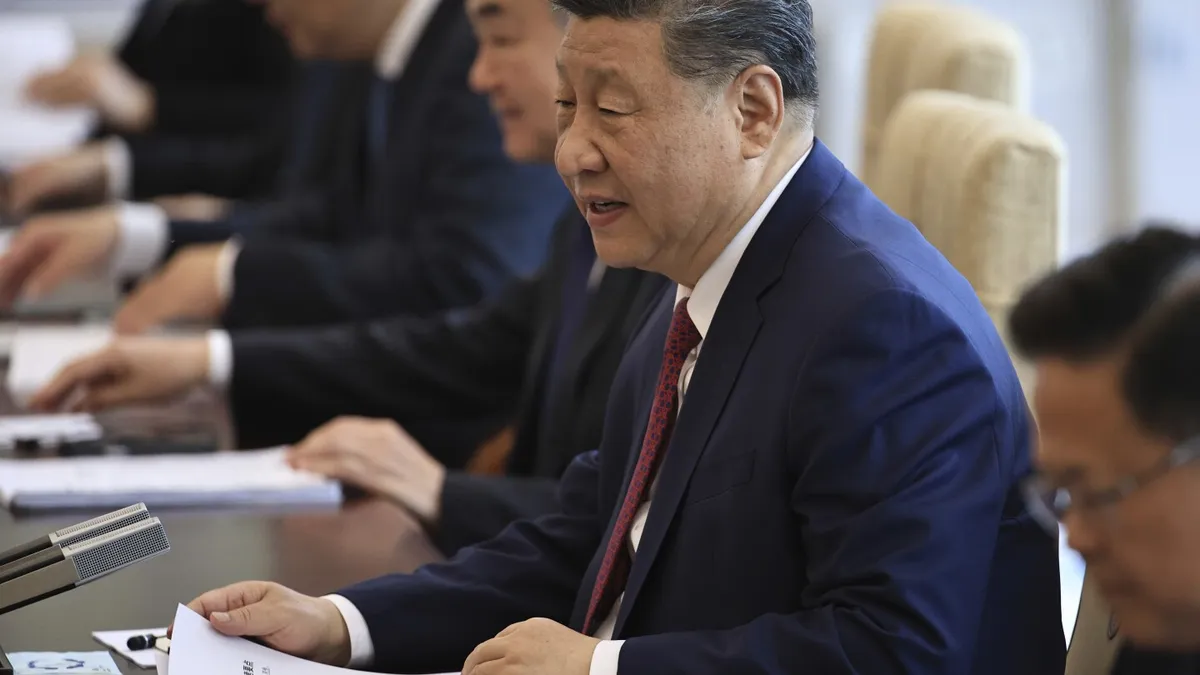
On Monday, China's leader Xi Jinping commenced a week of significant diplomacy in Southeast Asia, marking his arrival in Vietnam. This visit underscores China's commitment to global trade, particularly in light of the recent economic upheaval caused by U.S. President Donald Trump's latest tariff strategies. Despite a temporary pause on some tariffs, the U.S. has maintained a staggering 145% tariff on goods from the world's second-largest economy, China, creating an urgent need for new alliances in the region.
Xi's visit serves as a platform for China to present itself as a responsible superpower, a stark contrast to the U.S. under Trump's leadership, as noted by Nguyen Khac Giang, a visiting fellow at Singapore's ISEAS–Yusof Ishak Institute. This diplomatic mission allows China to strengthen its ties in Southeast Asia while addressing the high trade barriers imposed by the U.S. on its exports. In a joint editorial published in Vietnamese and Chinese media, Xi emphasized, “There are no winners in a trade war, or a tariff war. Our two countries should resolutely safeguard the multilateral trading system, stable global industrial and supply chains, and an open and cooperative international environment.”
The timing of Xi's visit is particularly noteworthy, occurring amid an escalating tariff conflict between China and the U.S., the two largest economies in the world. During his two-day stay in Vietnam, Xi is scheduled to meet with Vietnam’s Communist Party General Secretary To Lam and Prime Minister Pham Minh Chinh. This trip, which marks Xi's third visit to Vietnam since he assumed the presidency in 2013, holds additional significance following his last visit in December 2023.
According to Huong Le-Thu from the International Crisis Group, this visit conveys a strong political message about the importance of Southeast Asia to China. She notes that given the severity of Trump's tariffs, Southeast Asian nations are concerned that these tariffs could hinder their development. “Xi’s trip is to showcase how China represents a contrasting approach to the coercive and self-interested policies of the U.S.,” she explained, highlighting the expectations for China to demonstrate effective leadership and initiatives during this critical time.
Vietnam has adeptly navigated its relationships with both the U.S. and China, operating under a Communist, one-party system similar to China's while fostering a strong partnership with the U.S. In 2023, Vietnam uniquely hosted both U.S. President Joe Biden and Xi Jinping, and it elevated its diplomatic ties with the U.S. to the same level as those with China and Russia. As businesses seek to decouple supply chains from China, Vietnam has emerged as a key beneficiary, with trade between China and Vietnam surging by 14.6% year-on-year in 2024, as reported by Chinese state media.
However, the intensification of the trade war has placed Vietnam in a precarious situation. Giang highlights concerns that the U.S. may perceive Vietnam as a backdoor for Chinese goods, especially after Vietnam faced a 46% tariff under Trump's orders prior to the 90-day pause. Despite their close economic ties, China and Vietnam also grapple with long-standing territorial disputes in the South China Sea, where confrontations with China's coast guard have occurred, albeit not frequently publicized.
After his diplomatic engagements in Vietnam, Xi is expected to continue his tour in Malaysia and Cambodia, further solidifying China's influence in the region amidst ongoing geopolitical tensions. His visit signifies not just a commitment to strengthening trade relationships but also an opportunity for China to assert its role as a leading power in Southeast Asia.